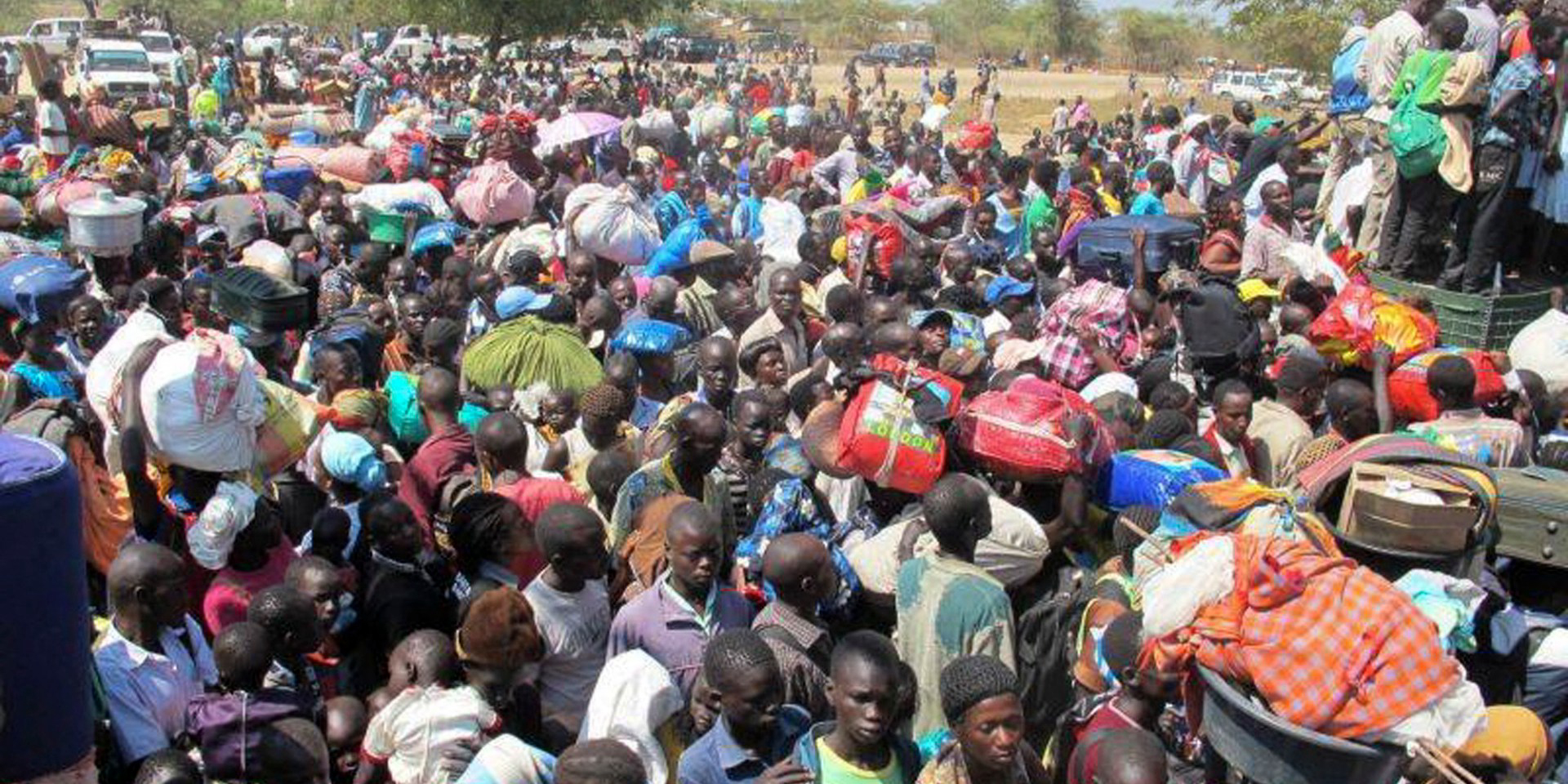
An immigration issue has brought diplomatic relations between South Africa and Zimbabwe to a standstill.
Pretoria accuses Harare of ignoring the plight of its citizens, who have flocked to South Africa in search of better economic opportunities and living conditions.
An estimated one million Zimbabweans work and live in South Africa while maintaining ties with their home country, where they customarily send remittances.
In recent months, South African officials and politicians have voiced concern about the economic and social pressure resulting from this wave of immigration.
Failed State It has been just over 20 years since the Zimbabwean government under the late President Robert Mugabe decided to redistribute land from white-owned commercial farms to black farmers.
Since the controversial land reform was implemented in 2000, the Zimbabwean economy has been spiralling downward.
The international backlash against the policy is still felt today. As a result of the racially motivated land reform project — which benefited the ruling (Zanu PF) — the country was put under financial sanctions by several governments.
To hold on to power despite glaring failures and rampant corruption, the Zanu PF has had to use despotic tactics, including clamping down on opposition politics.
- Chamisa under fire over US$120K donation
- Mavhunga puts DeMbare into Chibuku quarterfinals
- Pension funds bet on Cabora Bassa oilfields
- Councils defy govt fire tender directive
Keep Reading
Once a symbol of liberation, Zanu PF has run Zimbabwean politics to the ground, becoming a State on the brink of failure.
In Zimbabwe, many are leaving the country to seek better living conditions or find employment. Migrants send money back home, showing that they do not intend to leave the country permanently.
They simply cannot make a living in the system that has emerged during Zanu PF’s 42-year reign.
Zimbabwe’s political fiasco is beginning to affect South Africa, which is also grappling with democratic consolidation under the seemingly fatigued African National Congress (ANC).
South Africa’s high unemployment often sparks social tensions, including xenophobic violence against African migrants.
The country’s immigration policy — or lack thereof — has come under the spotlight as populist movements and leaders stoke resentment against citizens from other African countries living and working in the country.
South Africa’s ruling ANC is facing backlash for keeping borders open and turning a blind eye to the deteriorating political situation in Zimbabwe over the years. South African leaders seldom reproach their Zimbabwean counterparts for bad political decisions — while they freely do so with Botswana.
The Southern African Development Community (Sadc) region has tolerated the Zanu PF for years, and now the price for that silent diplomacy is becoming too high to bear.
This is especially true for the ANC, which is struggling to stay in power after ruling since the end of apartheid in 1994.
While the land reform policy in Zimbabwe was being enforced through blatant violations of human rights, South Africa adopted what was later described as “quiet diplomacy” in relation to the crisis.
Most other Sadc States also refrained from criticising the political deterioration in Zimbabwe. Sadc had no official position on the Zimbabwean crisis, and the ruling elites in Harare were allowed to consolidate their hold on power.
However, Zimbabwe’s crisis has now become a regional issue. Botswana has adopted draconian immigration laws to deal with the flow of migrants, and other countries in the neighbourhood are beginning to realise the situation will affect them as well.
Sadc has been struggling to formulate a clear position and a discernible strategy on how to deal with the question. There are multiple voices on the matter across different jurisdictions in the region.
Some South African political leaders maintain that there should be no borders on the African continent.
This is unrealistic and does not take into consideration security issues and the realities of a modern State, which implies territorial integrity and controlled borders.
Sadc’s lack of cohesion on the matter has been made worse by its failure to monitor the implementation of democracy in the region.
Now Zimbabwe’s humanitarian crisis will have ramifications that will be felt far beyond its borders.
Due to local political pressure demanding a clear immigration policy, ANC unilaterally decided to terminate temporary for Zimbabweans.
This is a radical move whose implementation could see scores of migrants being deported.
The decision has caused concern not only among Zimbabweans currently working in South Africa, but also among South African business owners who have come to depend on the Zimbabwean labour force.
Pretoria has abandoned its quiet diplomacy approach in relation to Zimbabwe, openly calling on Zimbabwean political leaders to take care of their problems at home.
Further, officials in South Africa have begun to allege that foreign nationals, including Zimbabweans, are behind a spate of violent organised crime in South Africa.
South African leaders are resorting to their usual strategy, namely blaming foreign nationals for all sorts of societal issues.
South Africa’s own failing politics has created a fertile breeding ground for such opinions.
Meanwhile, the view in Harare is that Pretoria unfairly evokes the immigration crisis to score political points with the increasingly agitated youth population in South Africa.
To resolve its migration woes, Sadc would have to begin by addressing the erosion of democratic consolidation in the region.
Failure to deal with Zimbabwe’s growing authoritarianism has resulted in most of the labour force living and working outside the country.
Until Sadc tackles the political stalemate resulting from the immigration crisis experienced by Zimbabwean nationals, it is difficult to see how the region could meaningfully address migration as a whole.
The situation is being exploited by politicians who promise unrealistic and potentially catastrophic short-term solutions to issues that can only be solved through a long-term approach. — GIS











